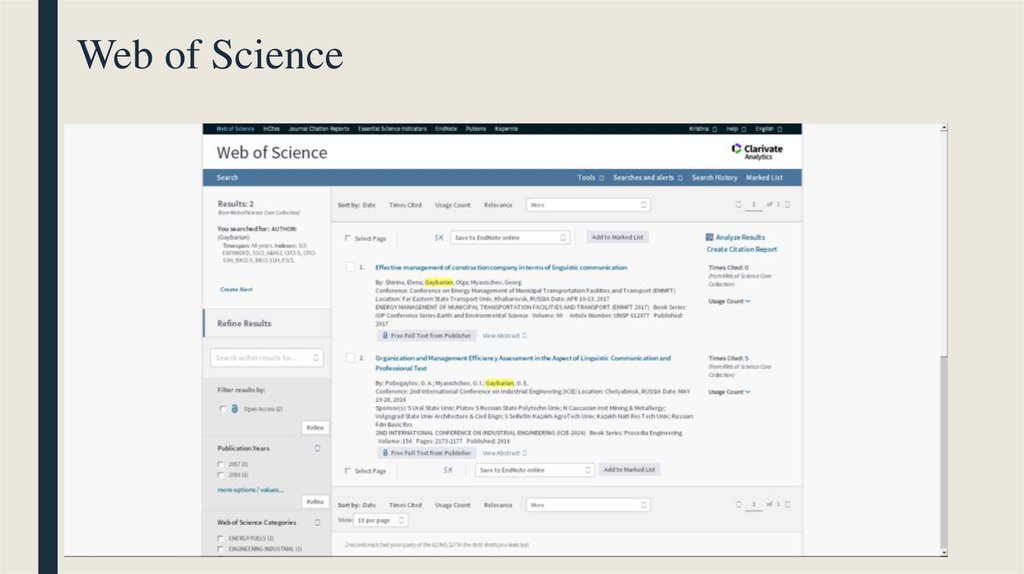Scopus and Web of Science are two of the most extensively used academic catalogs. From researchers to students, and individuals to institutions, everybody relies on them to find scholarly articles. However, this is not the only role it plays. Operators can also use it to track citations and assess the impact of journals.
Here is the catch: At first, they may seem similar, but they are obviously built differently. Each discipline has its own strengths, limitations, and perfect situations to be used in. So, if you are unsure which one to use for your research, you must read this blog until the end.
Learn to Choose Sides in the Web of Science vs. Scopus Debate


Don’t worry, you are not alone. Many scholars are panicking because they can’t make a choice easily. People ask: Why is it tough to make a choice? Why not just go with anything?
Of course, that is a bad idea because the choice can affect what you find, how you analyze it, and even how your work is evaluated. Let’s continue to discuss this, and you will come across a breakdown of the key differences between Scopus and ISI publication support.
Finding Out If Scopus is More Competitive Than Web of Science
| Feature | Scopus | Web of Science |
| Coverage | Broader | Quite selective |
| Content Depth | Focuses on modern content | Deeper historical coverage |
| Time Frame | Indexes literature dating back to 1900 | Indexes date back to 1788, But citations start from 1970 |
| User Experience | More user-friendly interface | Highly structured index |
| Analytics | Analysis includes non-peer-reviewed content | Rigorous analysis focusing on quality |
| Best for | Multidisciplinary research | In-depth historical research |
| Updates | Daily updates | Weekly updates |
| Author Profile | Detailed outlines | Basic author profile |
| Metrics | Provides Journal Impact Factor | Offers Cite Score. SNIP, and SJR, but not Impact Factor |
Here’s What the Comparison Chart Was Trying to Tell You
If you are just starting to explore academic databases, understanding the difference between Scopus and Web of Science journal can help you choose the right one for your research needs.
- Let us start by identifying that Scopus casts a wider net. It includes more journals and disciplines, especially newer publications. Web of Science, on the other hand, is more selective and only focuses on high-impact journals. It also offers deeper historical archives, which makes it ideal for tracing older research trends.
- Then, as it comes to usability, Scopus tends to be more beginner-friendly with a smoother interface and easier navigation. But not Web of Science. It is more structured and formal, which can be powerful for advanced users. The newcomers have always found it slightly intimidating.

- Both platforms also offer analytics. Where one (Scopus) includes data from non-peer-reviewed sources like conference papers, the other, Web of Science, sticks to rigorously vetted content. It ensures that the reliability of the paper is always high.
Some More Reading Between the Lines
Speaking of the focus, think of it like this: Web of Science is like a long-standing library with an incredible history. It is perfect for looking at the introductory research papers and allows you to dig back to the 1900s. But this is not the case with the other discipline.
Scopus covers a huge range of years, focuses more on the modern era, and has comprehensive citation data from the 1970s onwards. This means if you need to trace the roots of a scientific idea, Web of Science is the go-to. However, if you are looking for the latest and most comprehensive coverage of a recent trend, Scopus is likely better.
Next up, the daily updates mean you get the newest research almost instantly. Weekly updates might not be preferable for some scholars. So, as a scholar who wants to stay on top of the most current findings, Scopus is the best.
Then we have the author profiles. A detailed one incorporates a full social media existence for a researcher. It shows their entire publication history, collaborations, and also the metrics clearly. But the other database offers a more straightforward profile, which is similar to a business card. You must make the right choice, or your paper’s visibility might be influenced.
So, Which One Should You Use? Let’s Answer That
Experts suggest that if you are working across multiple disciplines or want access to a broad range of recent studies, Scopus is a great starting point.
But if your research requires deeper extractions into historical patterns or requires high-quality citation analysis, then Web of Science might be the better fit.
Don’t get confused. It isn’t a board game that one side loses when one side wins. It is academics. Sometimes, both options can be equally beneficial, but in different circumstances. This is the reason why many researchers have been observed experimenting with both depending on their project’s scope.
FAQ
- Do universities prefer one over the other for research evaluation?
Many institutions use both, but Web of Science is often favored for its selective indexing and historical depth. Scopus, however, is praised for broader coverage and integration with metrics like h-index. This makes it useful in performance reviews.
- Which database has better coverage in the humanities and social sciences?
Scopus generally offers broader coverage in the humanities and social sciences, including more regional and non-English journals. Web of Science, on the other hand, is more selective. This can limit representation in these fields but guarantees high-impact sources.
- How do citation counts differ between the two platforms?
The citation counts can always vary due to database coverage. More specifically speaking, Scopus often reports higher counts because it indexes more sources. But the Web of Science usually shows fewer citations.
- Is one better for early-career researchers?
Yes, Scopus is often more helpful for early-career researchers due to its wider journal coverage, faster indexing, and user-friendly metrics.
We Are Afraid There Isn’t ONE Correct Answer
As we said earlier, there is no compulsion to always have a single winner. Sometimes there are two, and you have to agree, exactly like what happened in this case. Both the choices in question are correct and perfectly beneficial for the scholars.
Though in separate situations. Hence, so far, one thing is crystal clear. To decide which ones best suit you, it is important to know each side’s strengths and weaknesses. Once you know, making smarter choices becomes way easier. This blog is a reminder that you need to update your knowledge of the differences between the databases.











